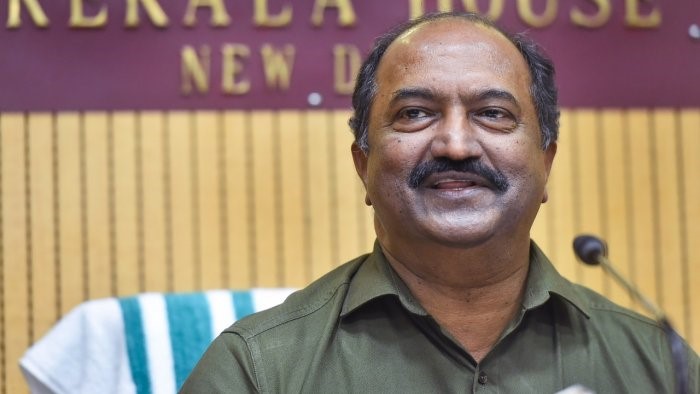
Why Kerala thinks Centre's fiscal policy is stifling state's coffers

Kerala Finance Minister KN Balagopal has written to Union Finance Minister Nirmala Sitharaman, expressing serious concern over the looming financial crisis that the state has to go through due to the Centre’s policies.
According to Balagopal, the financial health of Kerala has been seriously affected by a reduction in the revenue deficit grant to the tune of around ₹7,000 crore this year and loss due to the stoppage of GST compensation of around ₹12,000 crore. In addition, the Union Ministry of Finance has arbitrarily, in the name of off-budget borrowing, made a reduction of approximately ₹4,000 crore in the net borrowing limits of the State. In all, the State government will have to contend with a reduction of ₹23,000 crore in the financial resources available to it for financing the budget in the current financial year.
Also read: Kerala spars with Centre on GST, says common man’s items should be tax-free
‘Serious threat’
“This poses a serious threat to the government in sustaining spending on welfare schemes for the poor, including housing, education and health among others. Unless the realities faced by the state, particularly given the fact that the state is struggling to emerge from the economic debilitation wrought by the Covid pandemic, are recognised by the Union government, the safety of the socio-economic security system that the state has worked so hard to build over the last several decades will be in jeopardy,” says the letter.
Also read: No debt trap, Kerala rubbishes RBI report
According to Balagopal, some of the actions of the Union Ministry of Finance, while fixing the State’s net borrowing ceilings, have raised some grave concerns.
“It is pointed out that under the declared objective of fixing the net borrowing ceiling, Article 293(3) of the Constitution is being used to vitiate the State’s independence and make systematic inroads into the financial autonomy of State Governments, enshrined in our Constitution,” Balagopal said.
Also read: Kerala Masala Bonds case: Why ED needs to do solid homework before quizzing Thomas Isaac
“The requirement that a State must obtain consent under clause (3) of Article 293 of the Constitution of India is applicable only when a State is either indebted to the Centre, or when repayment of a loan taken by the State which the Centre has guaranteed remains outstanding. This implies that the purpose of this provision in the Constitution is to protect the rights of the Centre in its capacity as a creditor. Clearly, therefore, the conditions under Article 293 (4) are applicable only for specific loans for which the Centre provides consent. Even if for argument’s sake, conditions under Article 293(3) were to be made generalizable over the overall annual borrowing programme of 6 States, this could at most apply to the State’s share of Open Market Borrowings and the borrowings from Central PSUs and Financial Institutions like LIC, NABARD etc.,” he added.
The letter categorically differs from the Centre’s decision to limit the off-budget borrowing through special purpose vehicles and body corporates.
The Centre issued a letter to the State on 31 March 2022 containing instructions on the Net Borrowing Ceiling for the financial year 2022-23. This letter stipulated borrowings by State Public Sector companies/corporations, Special purpose vehicles (SPVs) and other equivalent instrument shall be considered as Borrowings made by the State itself for the purpose of issuing the consent under Article 293(3) of the Constitution of India.
Also read: Kerala govt to launch online cab service
‘Attempt to kill KIIFB’
The LDF government alleged that this is nothing but an attempt to kill KIIFB (Kerala Infrastructure Investment Fund Board) – the body corporate that is successfully implementing infrastructure development projects in the State. Both the Union government and the State governments have several such body corporates carrying out development plans. The Kerala government alleged that the restrictions are imposed only upon the States, and not imposing any limit on the borrowings done by the agencies belonging to them.
“The scope of Article 293(3) and (4) are limited to the State as defined under Article I (1) of the Constitution. It cannot be extended to include the debt of Government Agencies, including Companies and Statutory Bodies, regardless of whether the Legislature of the State decides to finance them by way of grant or assignment of taxes and other revenues through its Budget,” Balagopal’s letter to the Centre stated.
Also read: Kerala culls hundreds of pigs to contain African swine fever; farmers unhappy
Kerala also alleged that this decision of the Union government is arbitrary, which is not supported by any of the previous finance commissions.
The share of loans and advances from the Centre has declined from over 15.8% of all State liabilities in 2005 to 3% in 2020. Kerala is no exception to this trend. The outstanding loans and advances from the Centre to Kerala as a percentage of the State’s total liabilities have reduced from 12.4% in 2005 to 3.3% in 2020.

